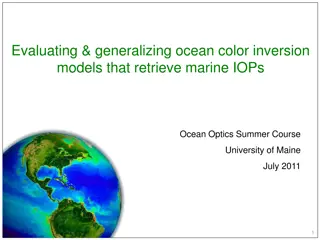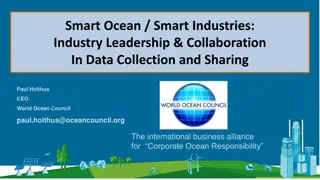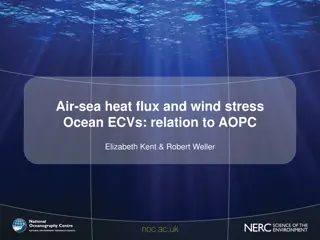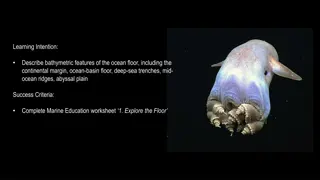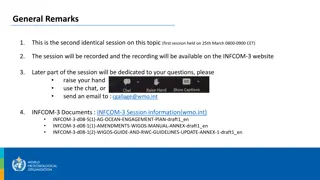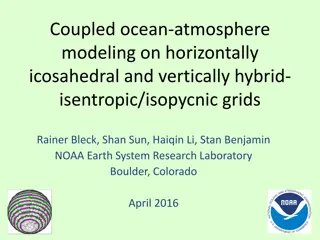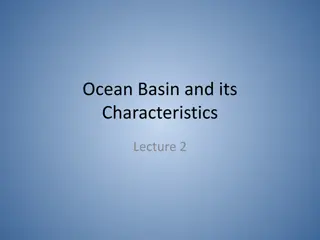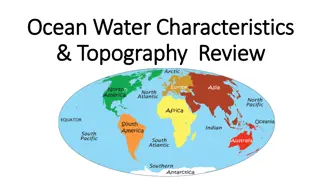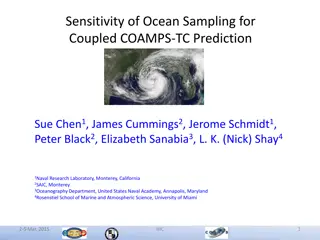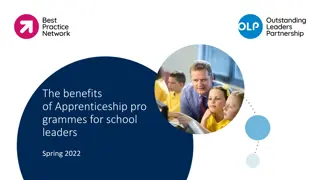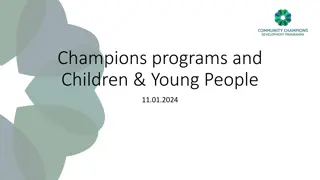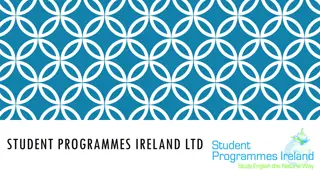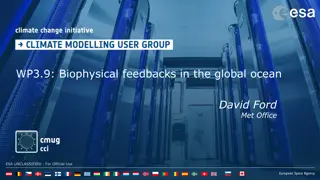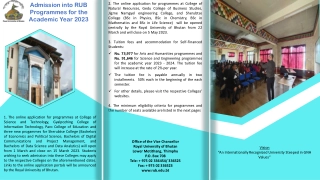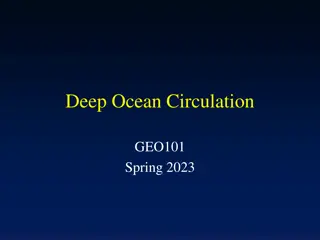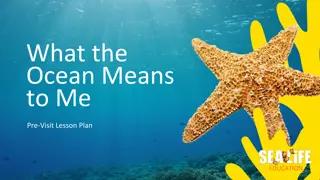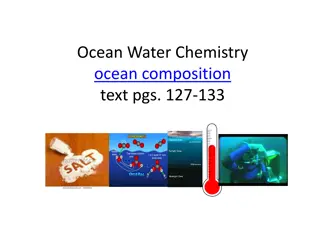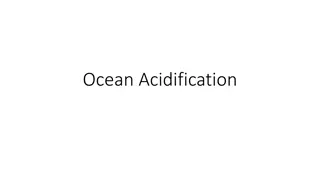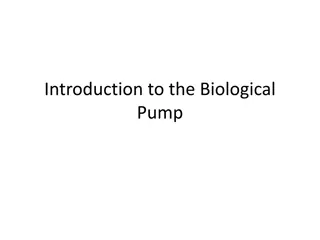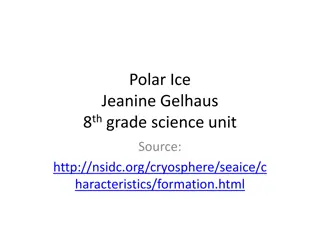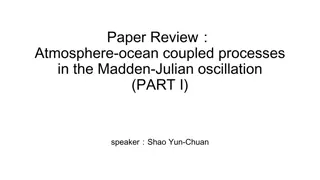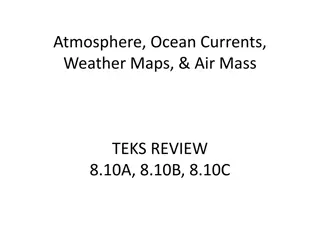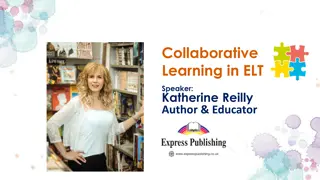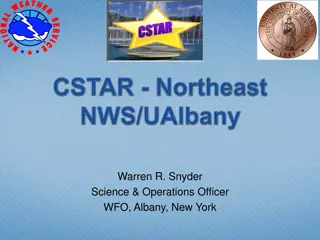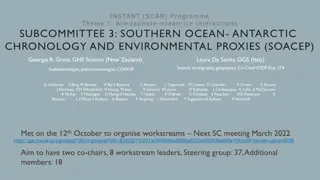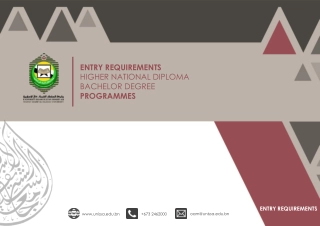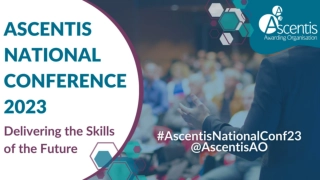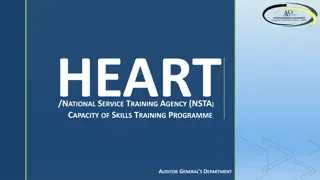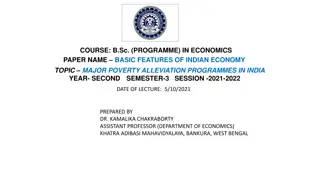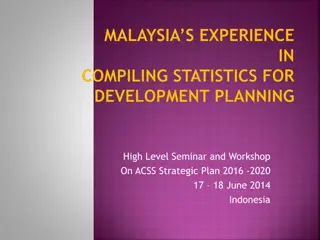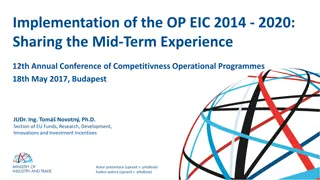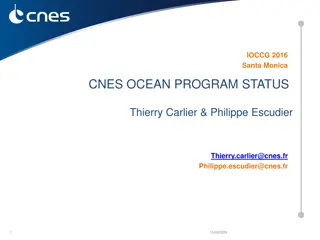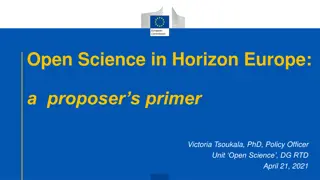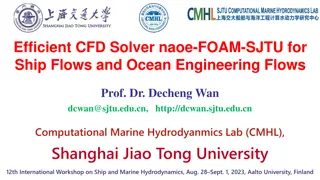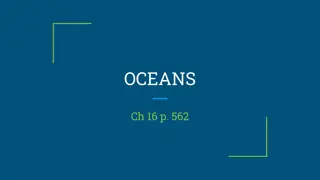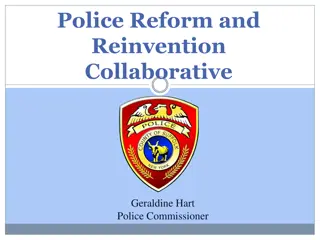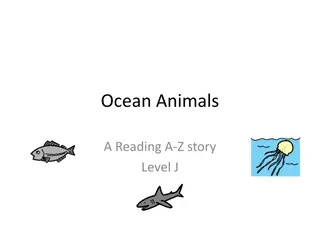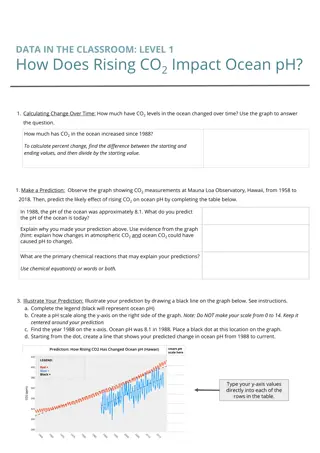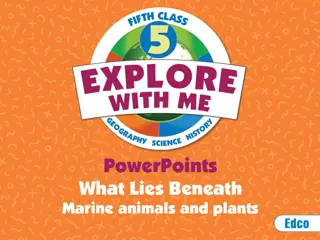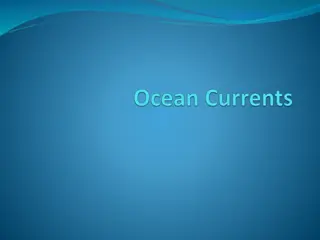Collaborative Research Programmes in Ocean Science
Collaboration between the International Oceanographic Commission (IOC) and the Scientific Committee on Oceanic Research (SCOR) has led to successful research initiatives focusing on topics like Harmful Algal Blooms, Global Trends of Phytoplankton, Multiple Ocean Stressors, Microplastics, and more. Ongoing projects such as GlobalHAB, TrendsPO, and IOC-R aim to address pressing societal needs and advance understanding of ocean ecosystems. The partnership also involves organizing conferences and expeditions to enhance knowledge sharing and sustainable development in marine environments.
Download Presentation

Please find below an Image/Link to download the presentation.
The content on the website is provided AS IS for your information and personal use only. It may not be sold, licensed, or shared on other websites without obtaining consent from the author. Download presentation by click this link. If you encounter any issues during the download, it is possible that the publisher has removed the file from their server.
E N D
Presentation Transcript
SCOR Executive Monitor Marie Alexandrine Sicre
The IOC and SCOR have long successfully cooperated and strengthened research and scientific programmes: Harmful Algal Blooms The current decadal IOC-SCOR research programme to meet societal needs in a changing world, entitled GlobalHAB, launched its science and implementation plan in 2017. Time Series IOC expert group to investigate Global Trends of Phytoplankton in the ocean, in particular the coastal ocean (TrendsPO, 2016) -the Group continues the comparative analysis and synthesis of long time series data sets compiled by SCOR WG137 and expands the focus not only to the continental shelf and open oceans, but also to estuarine and upstream freshwater ecosystems. The IOC working group on Multiple Ocean Stressors (2018), with leading contributions by members of the SCOR WG149 and is now a project.
Open Science Conference on Eastern Boundary Upwelling Systems (EBUS): Past, Present and Future IOC is actively engaged with a number of partners, including WG155, and in the Open Science Conference on EBUS: Past, Present and Future Open Science Conference on EBUS and the Second International Conference on the Humboldt Current System , to be held in Lima (Peru) 19-23 September 2022. Integrated Ocean Carbon Research (IOC-R, 2019) (through IOCCP) this group investigate the role of microbial processes in forming refractory dissolved carbon (r-DCO) and how this acts as a sink or a source of carbon, as part of the "biological pump . In the biennium, the IOC-R initiative will result into a Decade programme, reaching out further to other stakeholders than the scientific community.
Microplastics - GESAMP Working Group 40 on Sources, Fate and Effects of plastics and micro-plastics in the marine environment , led by IOC and UNEP, was initiated in 2012. The Working Group has recently published guidelines on how to monitor plastics in the ocean. The focus in 2019 2022 is on an overview of risks associated with marine plastic litter; environmental risk from nano- and microplastics; and human health risks associated with nano- and microplastics. Link with Floatsom?? The joint Second International Indian Ocean Expedition to advance our understanding of the Indian Ocean and its role in the Earth System in order to enable informed decisions in support of sustainable development and the well-being of humankind.
UN Decade of Ocean Science for Sustainable Development To date, over 240 Decade Actions have been endorsed. These Actions cover all ten Ocean Decade Challenges and are being implemented by lead partners from over 40 countries. The third Call for Decade Actions No. 03/2022 was launched on 15 April 2022 on sustainable blue food and sustainable ocean economy, as well as projects for 16 endorsed Decade programmes. This Call also solicits in- kind or financial contributions to support Decade Actions in Africa and Pacific SIDS. 28 National Decade Committees have been created and 6 regional taskforces are convening partners in the development and operationalisation of regional Action Plans and programmes. An African regional taskforce is being established to oversee implementation of the Ocean Decade Africa Roadmap. 5 Decade Collaborative Centres have been endorsed as decentralized coordination hubs for the Decade. The Ocean Decade Expert Roster has been established to create a pool of experts to assist the IOC Secretariat with for ex the review of Decade programme submissions.
UN Decade of Ocean Science for Sustainable Development The revamped Ocean Decade website was launched in October 2021 and incorporates the Global Stakeholder Forum, an online community platform for exchange and collaboration which has over 4000 registered users. The GenOcean communications campaign was launched on 4 April 2022 and is the public facing communications campaign of the Decade that aims to incite the general public to take action based on enhanced ocean knowledge.
UN Decade of Ocean Science for Sustainable Development Mobilisation of resources remains a key challenge for the Decade during the transition from the planning phase to the action phase. The Ocean Decade Alliance has grown during this period and now numbers 9 Patrons and 15 institutional members. There have been significant efforts to engage philanthropic Foundations, In-person meeting of the Foundations Dialogue was held from 1 3 June 2022 in Rabat, Morocco hosted by the Foundation Mohamed VI for the Protection of the Environment.


